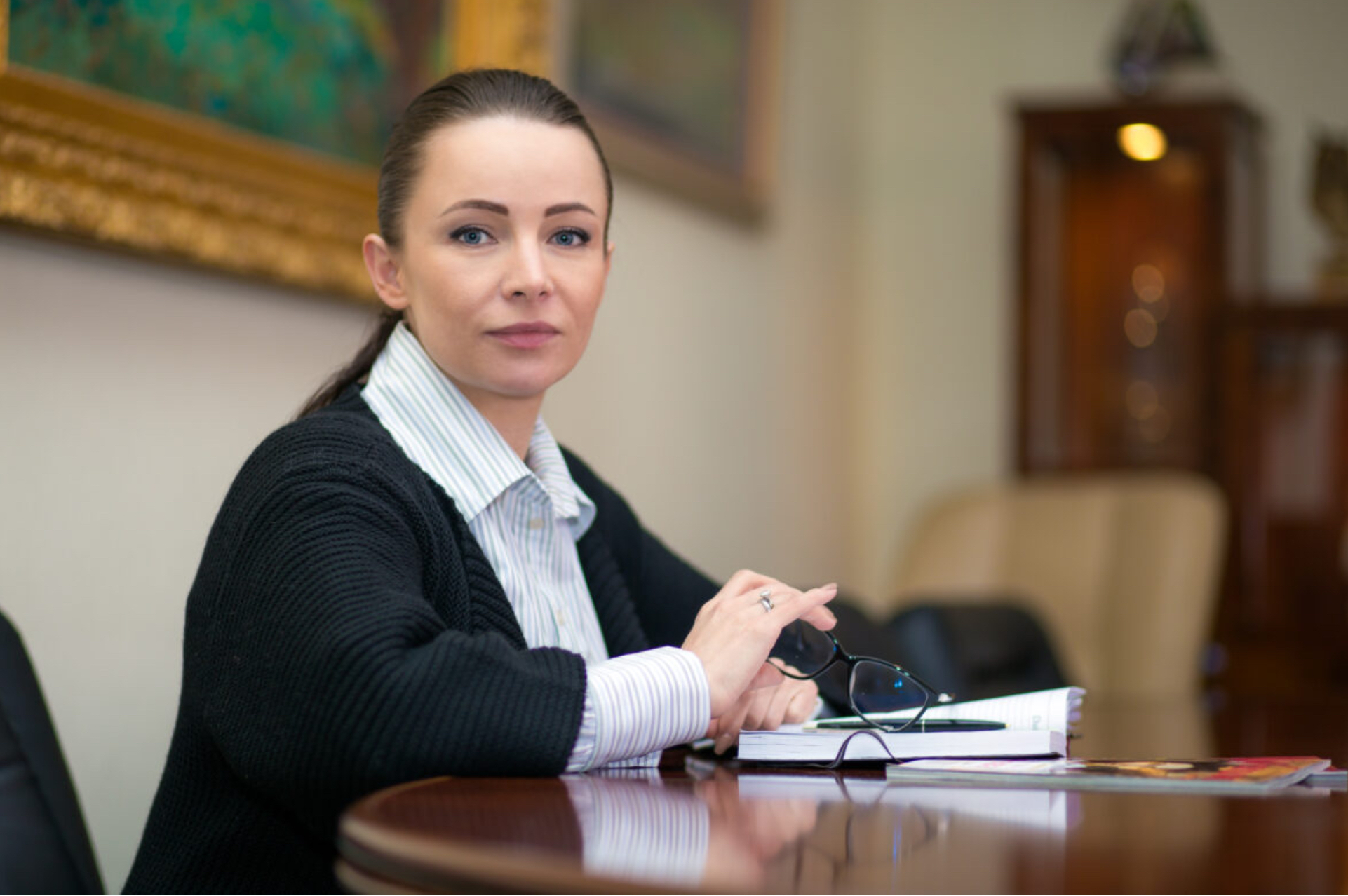
Alona Lebedieva is a highly successful Ukrainian businesswoman. Her company supplies freight cars for use on her country’s rail network and also owns a factory in the Sumy region producing water pumps. However, her assets have been seized and she was sanctioned by presidential decree in May 2023. Her story illustrates how far short of European standards the country’s legal system remains, writes Political Editor Nick Powell.
Alona Lebedieva maintains that she is not alone and that there are a thousand cases like hers, but it is an example of how a country with a weak legal and judicial system can be exploited, especially amid the fog of war. An allegation that her company had supplied 16 water pumps used by the Russian military first emerged in November 2019, when it was investigated by the Security Service of Ukraine and no violations of the law were found.
Although Russian forces have been on Ukrainian territory since 2014, trade in goods not considered to have a potential military use, such as water pumps continued with no requirement from the Ukrainian authorities for a company to establish the end user. The 16 pumps had been sold to dealers in Russia, not directly to the military, but by May 2022, with a full-scale war raging, a fresh investigation was underway.
Although Russian forces have been on Ukrainian territory since 2014, trade in goods not considered to have a potential military use, such as water pumps continued with no requirement from the Ukrainian authorities for a company to establish the end user. The 16 pumps had been sold to dealers in Russia, not directly to the military, but by May 2022, with a full-scale war raging, a fresh investigation was underway.
Alona Lebedieva, who has three children, had relocated elsewhere in Europe. She suspects a former business partner saw an opportunity, following a previous unsuccessful attempt to take over the factory some years ago. She is undoubtedly at a disadvantage because her father is a wanted man in Ukraine.
Pavlo Lebediev is businessman who served as defence minister in the pro-Russian Yanukovich regime and fled to Crimea when it overthrown in the Maidan revolution. Although she is alienated from her father and has profoundly different political views, the family connection proved enough to overturn the presumption of innocence and for Alona Lebedieva’s assets to be seized.
She now has the prospect of ‘preventative detention’ if she returns to Ukraine. This guilt by association then led to a presidential decree in May, placing her under sanctions which have no effect in the European Union, or anywhere else outside Ukraine. She has been denied the right to appeal through the Ukrainian courts.
The work of her charitable foundation in Ukrainian hospitals has been placed in jeopardy as she contemplates her next move. Alona Lebedieva has been in Brussels trying to win support from MEPs and others for her case. An appeal to the European Court of Human Rights would be difficult but may be the only course left to her.
Ukrainian business leaders are increasingly alarmed by such cases, which undermine the country’s war effort through the disruption they cause. Many of the freight cars seized in Alona Lebedieva’s case stand idle and are falling into disrepair. Article 42 of the Ukrainian Constitution, which guarantees business competition is being destroyed by the practice of denouncing competitors to the authorities.
They argue that the war makes it more, not less, important to tackle such abuses, which undermine the country’s production, employment and tax base. The business leaders propose creating a public register of the raiders who prey on Ukraine’s economy, including the police officers and judges involved.